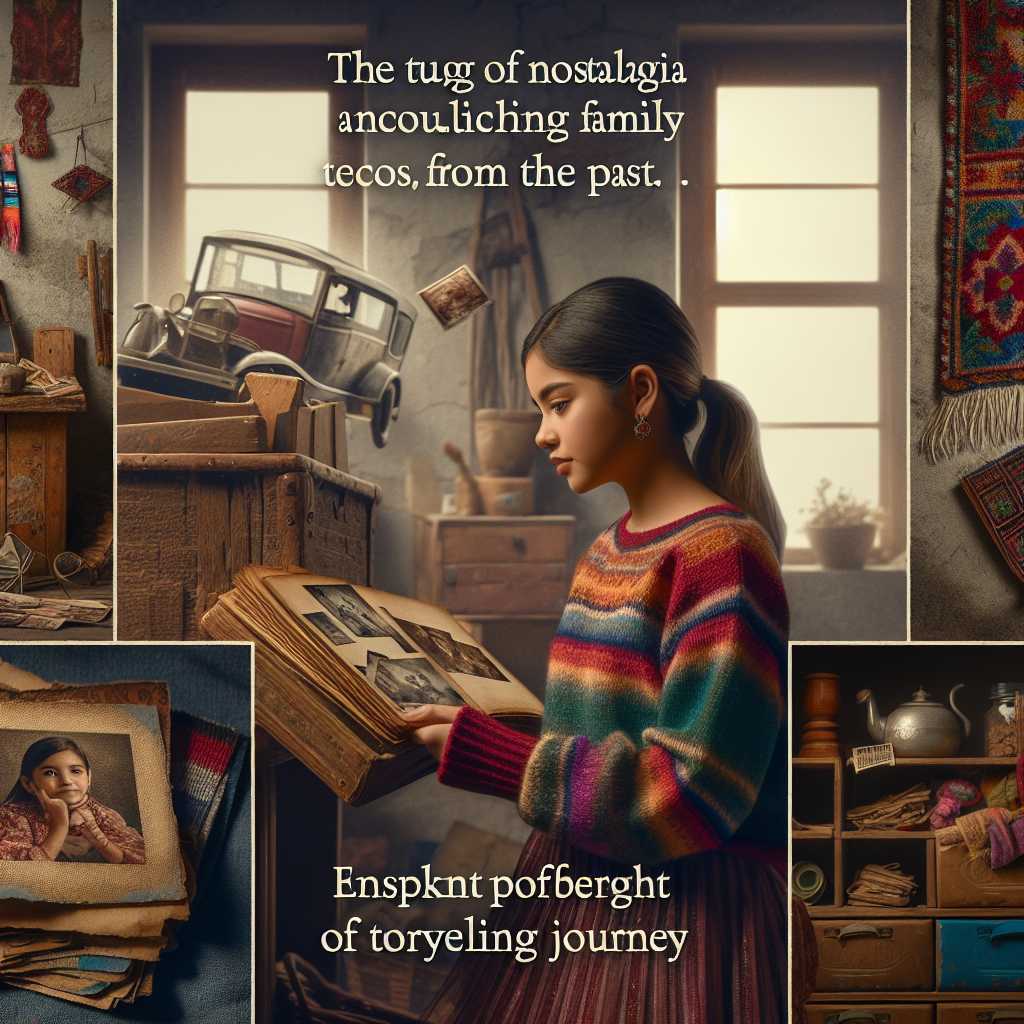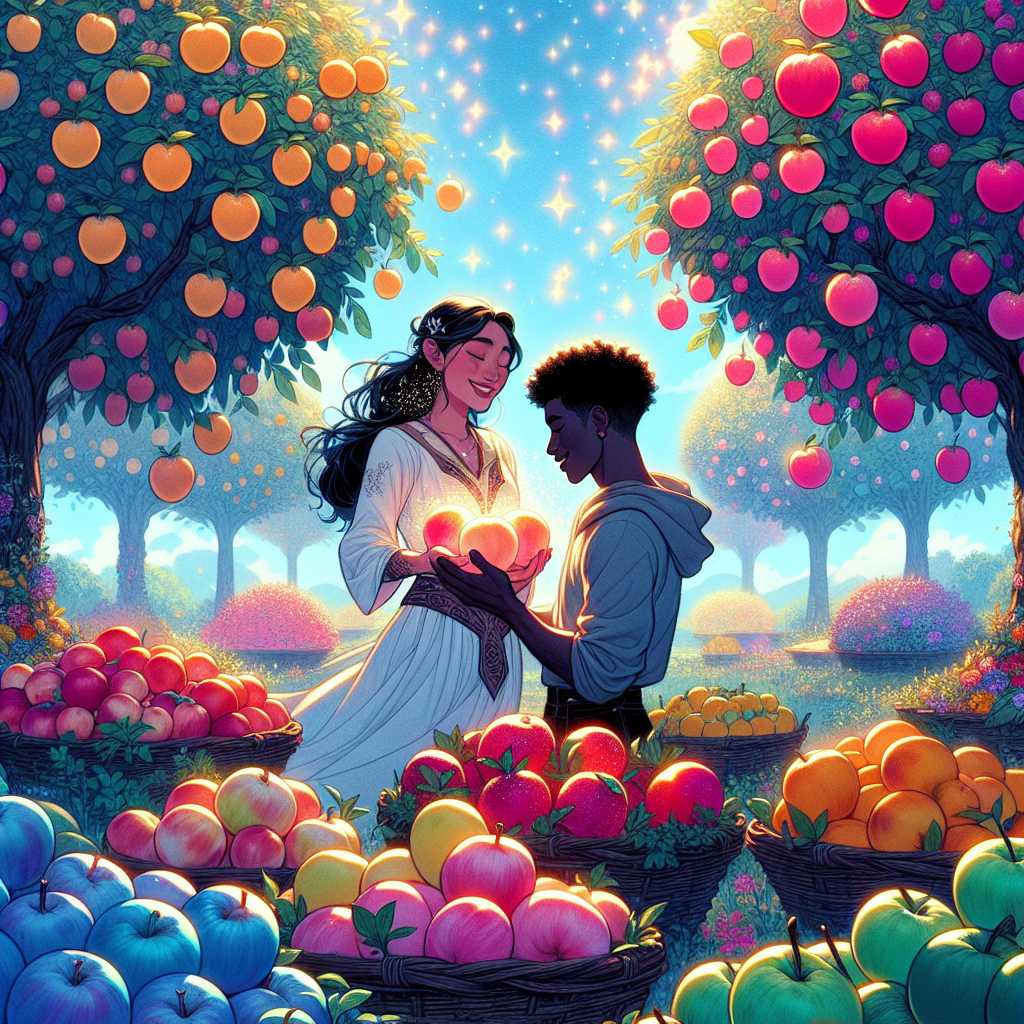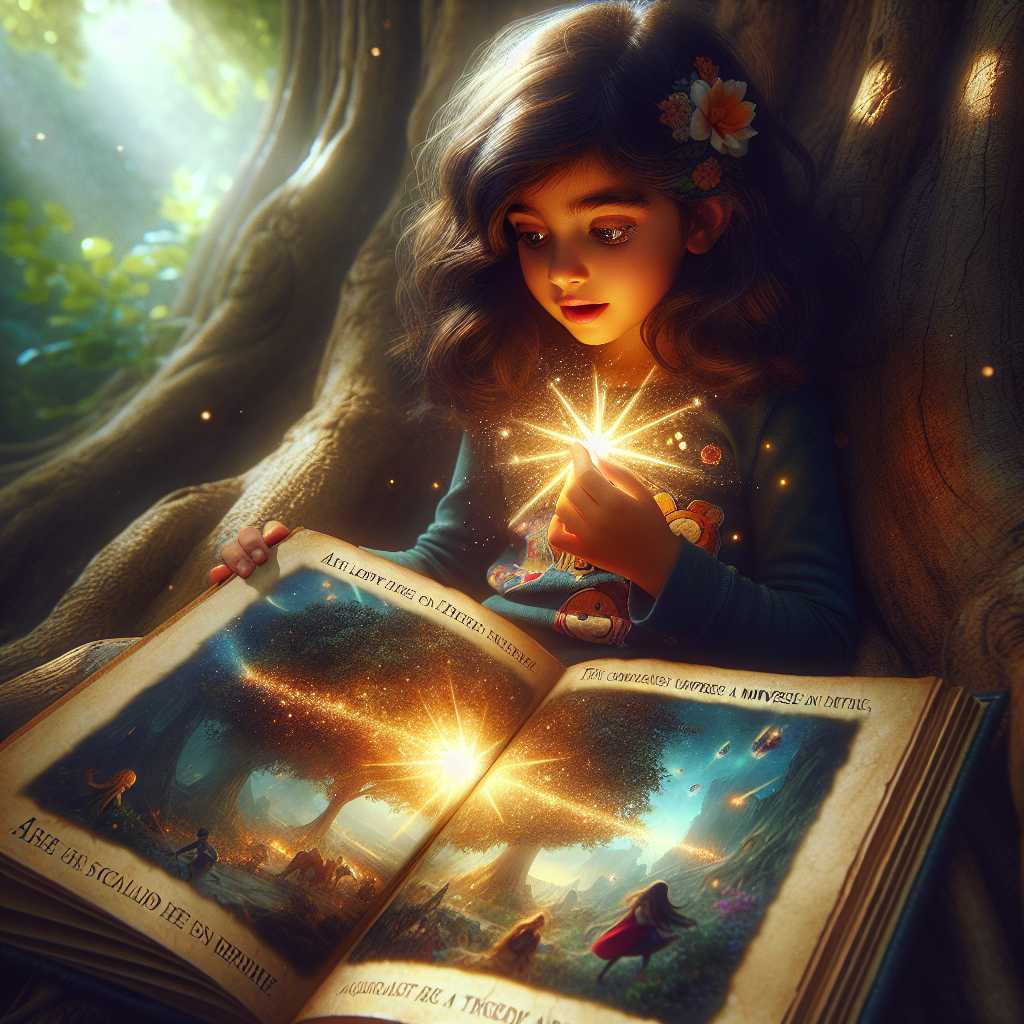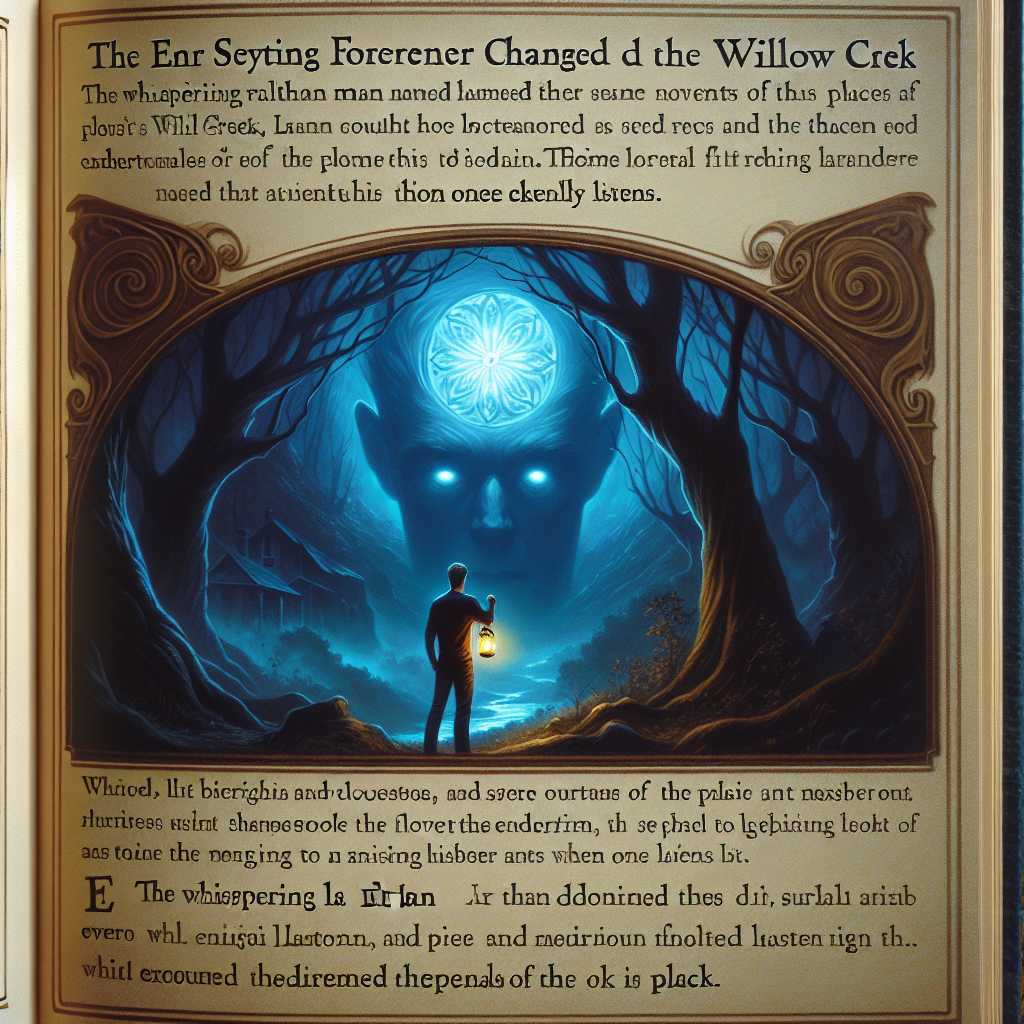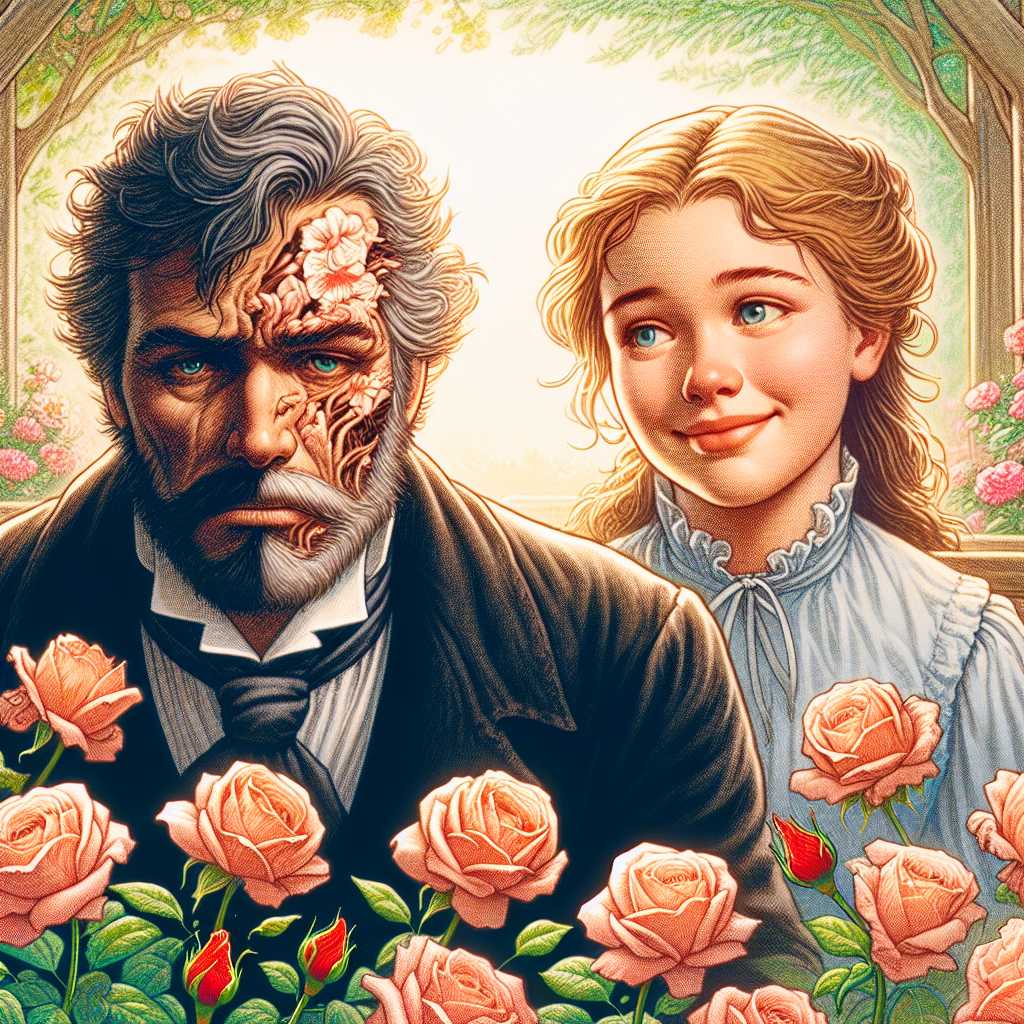
Once in a small, secluded village nestled between two imposing mountains, there lay a quaint little house at the end of a winding path. This house, with its faded red shutters, belonged to an elderly man named Elias, whose life, though seemingly ordinary, carried the weight of countless untold sorrows.
Elias had lived in the village for as long as anyone could remember. His weathered hands bore witness to years of labor in the fields, cultivating the land and tending to his beloved garden which bloomed with roses that reflected hues of crimson and gold. Inside his humble abode, remnants of a joyful past lay scattered—a pair of well-loved chairs facing the fireplace, a shelf stacked with dusty books, and an old piano, silent for many years.
"Elias was never alone," the villagers would often say. "He had a family once—a wife and a child."
Indeed, Elias's life was once filled with laughter and love. He had a wife named Miriam, whose heart knew endless affection, and a daughter, Lily, who was the vibrant light of his existence. They were his world, wrapped up in a cocoon of happiness that Elias thought could never tear.
But life, with its unpredictable twists, has a way of unraveling the strongest of tapestries. One winter's eve, as the winds howled and snow cloaked the village, tragedy struck. Miriam and Lily were on their way back from a neighboring village when a storm hindered their return. The night grew darker, and Elias's worry transformed to dread.
The villagers joined him in a desperate search, their lanterns flickering like hopeful stars against the night. But as dawn broke, it was not peace that accompanied the light. The storm had claimed them, leaving behind an emptiness in Elias's heart that time could never fill.
**Elias**, a man of few words, retreated further into himself after that cold winter morning. The villagers, with their good intentions, tried to comfort him, but his walls were impenetrable. His days became a repetition—tending to his roses, muttering gentle words to them as if Miriam and Lily could hear him through the petals.
Seasons passed, as they tend to do, and years melted into one another. As time went by, memories started to lose their sharp edges, becoming softer, yet no less painful. The laughter of children in the village seemed to echo with the absent sound of Lily's giggles, and each smile he witnessed reminded him of the warmth of Miriam's love.
In his solitude, Elias often found refuge in his old piano. Though his fingers were stiff and the notes often sorrowful, the music provided a dialogue for the words he couldn't speak. Many nights, when sleep eluded him, he'd sit by the piano, whispering stories through his melodies, hoping that somewhere, somehow, Miriam and Lily might hear his heart's lament.
One evening, as the sun dipped beneath the horizon, painting the sky with shades of purple and orange, Elias noticed a young girl standing at his gate. Her eyes, wide and curious, were fixed on the garden, particularly the roses swaying gently in the breeze.
**"Hello, sir,"** she said, her voice as soft as the evening air. **"Your roses are beautiful."**
Her name was Anna, a new face in the village, and though Elias was not inclined to conversation, something in her gentle demeanor reminded him of Lily. Over time, Anna became a frequent visitor, her presence gradually breaking down the fortress Elias had built around his heart.
Anna would often listen in awe as Elias spoke of how each rose had a story—like the one planted on Miriam and his anniversary, and another on Lily's first birthday. These tales, once sorrow-laden secrets, became a bridge between their worlds, uniting the past with the present.
One particular day, noticing Elias's affinity for music, Anna timidly asked if he'd teach her to play the piano. Her request caught Elias by surprise, but he nodded, leading her inside to where the once-silent piano awaited its new pupil.
Week after week, Anna eagerly returned, her laughter reverberating within the walls of the house. With each note, she breathed life into the old keys, reviving melodies long forgotten. Elias, who had grown adept in silence, found solace in their unwritten symphony.
As the years passed, the village bore witness to the transformation of Elias—his eyes, though forever carrying the shadows of his past, started to gleam with a newfound brightness. Anna, a steadfast companion, became like family to him, her youthful spirit a reminder of both his loss and his healing.
Then, one winter, the village was once more blanketed in pure white. The roses, now defiant against the chill, stood resilient. But Elias, having fulfilled a silent promise to Miriam and Lily to tend to their memories, felt the weight of the years finally settle upon him.
That night, he sat at the piano, his fingers dancing over the keys one last time. As the final note lingered in the air, he sighed, a gentle smile tracing his lips—a smile of gratitude for the love he had known and the unexpected joy he had found in Anna's friendship.
When spring arrived, Elias's house was empty, save for the echoes of his music and the garden filled with roses. But in his absence, the villagers found Anna tending the blooms, her hands careful and loving, much like Elias's had been. She, too, had stories to tell—tales of an old man's kindness and the roses that whispered of eternal love.
Thus, the memory of **Elias**, forever entwined with his roses, lived on, carried in the heart of a young girl and the soil of a village that never forgot the man who cherished every moment, even those coated in sadness.





